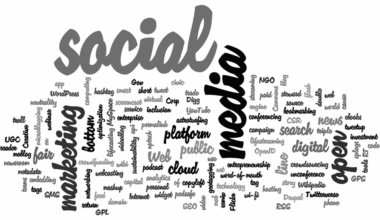Ethical Considerations in Health Communication on Social Media
In the realm of health communication, social media serves as a powerful tool for nonprofit organizations. However, with great power comes great responsibility, especially when disseminating vital health information. Ethical communication requires nonprofits to prioritize accuracy, transparency, and sensitivity to the audience. Misinformation can have dire consequences for public health. Nonprofits must ensure that their messages are clear and supported by credible sources. This adherence to accuracy plays a crucial role in fostering trust and engagement with their audience. Furthermore, nonprofits may utilize various strategies such as collaborating with healthcare professionals or using evidence-based content to support their messages. Social media platforms enable the quick sharing of information, making it essential for nonprofits to regulate what they post and how they communicate it. Sensitivity towards their audience’s diverse backgrounds and needs is equally important. Nonprofits must also uphold ethical standards to protect vulnerable populations and avoid stigmatization. Careful consideration and strategic planning are needed when creating communications. This way, nonprofits can effectively promote public health without compromising ethical integrity. Engaging the community in two-way communication fosters collaboration and enhances mutual understanding.
The role of consent in health communication on social media cannot be understated. Ethical practices dictate that nonprofits must respect individuals’ privacy and obtain informed consent before sharing personal health stories or data. This becomes crucial when highlighting patient experiences or showcasing testimonials. The potential for misuse of personal information is prevalent, raising concerns about confidentiality breaches on public platforms. Nonprofits should establish clear guidelines about the types of information shared in their campaigns and ensure that any shared content aligns with these protocols. Moreover, nonprofits should be cautious about their audience’s emotional health. Not all individuals may be ready to engage with sensitive topics. Engaging with a diverse audience necessitates an understanding of different perspectives and cultural sensitivities. Language used in posts should be inclusive, avoiding jargon that could alienate readers. Utilizing visuals can enhance storytelling while maintaining an ethical approach to representation. For instance, using diverse images can promote inclusivity. Leveraging social media analytics can guide nonprofits in understanding their audience’s preferences better and tailoring their content accordingly. This knowledge empowers nonprofits to prioritize ethical considerations while designing compelling health communication strategies.
Transparency in Health Messaging
Transparency is another critical ethical consideration in health communication. Nonprofits must disclose conflicts of interest, funding sources, and related partnerships. Informing audiences about potential biases in the information presented is essential for establishing credibility and fostering trust. This transparency helps readers make more informed health decisions, especially with the proliferation of health-related misinformation online. Nonprofits should be vigilant about the content shared by their partners to ensure alignment with ethical standards. Moreover, being transparent about the intent behind health campaigns encourages greater community engagement. Audiences are more likely to connect with organizations that openly share their motives. It also reinforces the notion that nonprofits prioritize their audience’s wellbeing over mere self-promotion. Another aspect of transparency involves acknowledging limitations. In the rapidly changing landscape of health information, updates and corrections should be communicated promptly. This adaptability signals that the organization is committed to providing the most accurate information. Additionally, establishing a feedback mechanism encourages individuals to share their perspectives, enhancing the two-way dialogue. Overall, nonprofits should cultivate a culture of transparency in health messaging to improve community relations and effectively address health concerns.
Considering the role of emotional appeals in health communication is crucial for ethical practices. While emotional appeals can be effective in reaching audiences, nonprofits must avoid manipulative tactics that exploit individuals’ vulnerabilities. For instance, overly graphic or distressing imagery can lead to fear rather than informed action. Instead, creating content that evokes empowerment and resilience fosters a healthier dialogue around health topics. It is important to prioritize messages that inspire hope and proactive behaviors, promoting mental well-being alongside physical health. When gaining audience trust is the goal, focusing on positivity can yield beneficial results. Additionally, harnessing storytelling techniques can humanize health issues, enhancing relatability and fostering a deeper connection. Nonprofits must balance urgency with compassion, encouraging people to take action without inducing panic. Utilizing testimonials and personal stories can create context around health issues. Compassionate communication aids nonprofits in building relationships with their audience. It signals that the organization understands and respects individual experiences. By promoting ethical storytelling that aligns with their mission, nonprofits can encourage healthier behaviors while adhering to ethical guidelines. Ultimately, emotional appeals, if done correctly, have the potential to motivate transformative change within communities.
Navigating Health Marketing Ethics
In navigating the complexities of health marketing, ethical considerations must forefront every strategy. Health nonprofits should actively avoid any marketing practices that compromise health information’s integrity. For instance, promoting products or services that lack scientific validation misleads the audience and damages trust. Nonprofits should focus instead on providing valuable educational content that promotes informed decision-making. Collaborating with trusted healthcare authorities can strengthen educational campaigns. They could also participate in informative dialogues that empower community awareness around critical health issues. Crafting marketing materials that engage while strictly adhering to ethical guidelines promotes an accountability-driven culture within nonprofits. It is equally essential for health nonprofits to critically evaluate their advertising practices concerning health disparities. Engaging with diverse communities requires sensitivity and understanding of unique cultural contexts. Campaigns should focus on empowering these communities through tailored messaging that highlights relevant health education. In addition, nonprofits must remain vigilant about their platforms. Publicly-funded organizations have heightened scrutiny, necessitating careful credibility evaluation for all communications. Aligning messages with ethical standards is vital in maintaining organizational integrity. Such adherence further promotes a culture of responsibility among nonprofits striving for positive health outcomes.
A crucial aspect of ethical health communication includes understanding the role of social media platforms themselves. Different platforms cater to varying audiences and communication styles, influencing how health messages are perceived. Nonprofits must understand the demographics, behaviors, and preferences of users on platforms such as Facebook, Twitter, and Instagram to effectively tailor their messages. Recognizing these differences allows nonprofits to engage different communities with appropriate content formats. For example, utilizing infographics and videos can simplify complex health topics while encouraging shares. However, nonprofits must also prepare for and address potential backlash. Public discussions around health issues can evoke strong emotions, leading to criticism of the organization’s stance. Developing a crisis communication strategy can mitigate risks associated with social media engagement. Quick responses to misunderstandings can help restore the organization’s credibility when needed. Nonprofits should also promote respectful dialogue around sensitive health issues. Establishing ground rules can facilitate constructive conversations while minimizing misinformation spread. Additionally, monitoring online discussions helps nonprofits remain aware of public sentiment and adjust their strategies accordingly. With an ethical approach, nonprofits can navigate the dynamic social media landscape, fostering community engagement.
Conclusion: Building Trust through Ethical Communication
Health nonprofits can play a transformative role through ethical communication on social media. By prioritizing transparency, consent, and respect for individuals, nonprofits foster trust and commitment from their audience. Engaging with communities ethically means that nonprofits recognize their responsibility to provide accurate health information while considering diverse perspectives. Taking a proactive approach to educate audiences can empower individuals to make informed health decisions. Furthermore, integrating emotional appeals with responsible storytelling can foster stronger connections, inspiring communities to engage in positive health behaviors. As the digital landscape evolves, nonprofits must continuously adapt their strategies to uphold ethical standards. Collaborating with healthcare professionals and utilizing research-backed content enhances the credibility of health messaging. Ethical dilemmas in health communication will continue, and nonprofits must seek innovative solutions to navigate these challenges. Empowering individuals to engage constructively around health issues makes a difference, broadening the conversation and encouraging grassroots movements. Ultimately, nonprofits can use their platforms to promote wellness and equity, ensuring that every voice is heard. A commitment to ethical health communication can lead to a more informed and healthier society.
By fostering trust through ethical communication practices, nonprofits can enhance their audience’s health literacy while contributing to the community’s well-being. Building a culture of inclusiveness, transparency, and respect for privacy can empower nonprofits in their mission to support public health endeavors.


